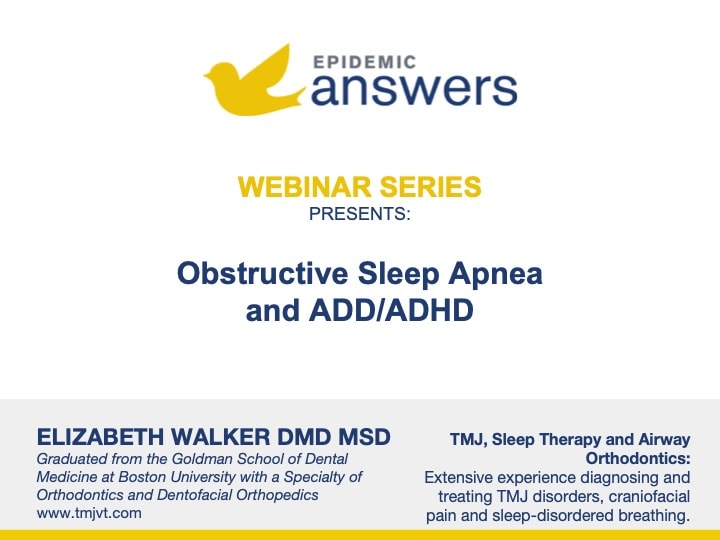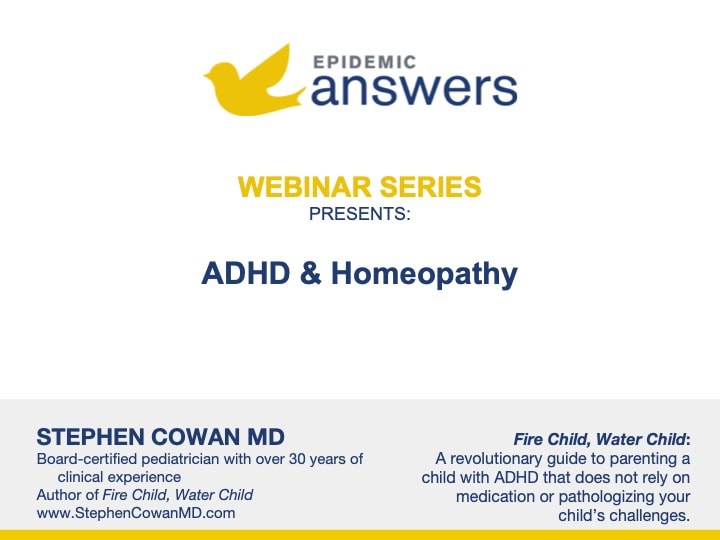In this blog post, Kelly Dorfman, MS, LND, discusses ADD and ADHD causes and potential solutions.
What Is ADD/ADHD?
Attention Deficit Disorder (ADD), with or without hyperactivity, is a subjective diagnosis that physicians apply to a standardized cluster of behaviors and symptoms. ADD/ADHD is on the “less severe” extreme the autistic spectrum, with PDD (pervasive developmental delay) and autism on the “most severe” end. Doctors sometimes “upgrade” autism or PDD to ADD or ADHD as sensory and cognitive function improve.
Identifying ADD and ADHD causes assists in determining effective treatments. Attention deficits can result when one or more of the following areas is affected.
Potential Biochemical/Nutritional Causes
Nutritional Culprits
Nutrition alters brain chemistry. When nutrition is compromised, the body is more likely to absorb toxins, causing further distress. Keeping a record of your child’s nutritional intake over several days can be enlightening.
Look for these commonalities:
- A high carbohydrate or sugary diet;
- Over two cups of juice or sweetened drinks per day;
- Limited or no vegetables – especially green leafy ones;
- Picky eating.
AD(H)D can be caused by deficiencies, sugar overload or both. Children can consume too few essential nutrients (like magnesium or good fats) or too many chemicals (including sugar, colors and heavy metals). Poor eating often requires supplementation.
In addition, blood-sugar imbalances caused by excess sugar and carbohydrate consumption can lead to spaciness and inattentiveness. Learn how to optimize blood sugar here.
If your AD(H)D child eats or drinks products containing artificial flavors, sweeteners and coloring, remove all additives. Learn about the Feingold diet here.
Untreated food reactions can also be the culprit. Gluten- and dairy-containing foods are well known contributors to ADHD symptoms.
Biochemical Imbalance
A biochemical imbalance may cause spaciness, irritability and/or distraction since the immune system talks to the nervous system. If you suspect this problem, ask your practitioner for a Enzyme-Linked Immunosorbent Assay (ELISA) IgG, IgA, IgE and IgM to detect potential allergens and sensitivities.
Sensory Processing Potential Causes
The nervous system spends most of its time reading and interpreting sensory data. When the sensory system is immature, it misreads information causing many symptoms of distraction. When a child talks too loudly or bumps into people, he may not be interpreting sensory signals accurately.
A sensory “diet” of appropriate touch and movement activities can reset his nervous system to read misinterpreted data more precisely from the inside out. Occupational and physical therapists, chiropractors and some mental health professionals use manipulation and specific exercises for this purpose.
Auditory Processing Potential Cause
The ability to follow directions or conversations, make decisions, organize thinking and speak coherently, all depend on good auditory processing skills. Take a three-part instruction, for example. A teacher tells her third graders to put their names on top right side of the paper, answer the odd number questions and put the finished work in the red box.
Children with auditory-processing issues start to write their names but then “forget” which problems they are supposed to do. They are the ones who put the homework on the teacher’s desk, instead of in the red box.
Frequent ear infections at a young age can adversely affect auditory development. Addressing ear infections before they become chronic may prevent later problems with listening.
Auditory training therapies also build processing skills.
Visual Processing Potential Causes
Most learning is done visually. Reading, spelling, writing, copying and using the computer all depend on healthy visual processing. For kids who cannot scan, interpret and coordinate visual data quickly and accurately, school can be difficult and exhausting. Signs of a stressed out visual system include fidgeting, staring out the window, wiggling, reading comprehension problems, eye blinking or rubbing, headaches, and trouble visualizing.
Behavioral optometrists can design a program to improve visual processing using specific activities designed to allow eyes and body to integrate vision and motor functions. Lenses and prisms may be also prescribed therapeutically.
Emotional Issues Potential Cause
Stress affects attention and concentration. Many children diagnosed with ADD/ADHD are living with illness or adversity at home, are sleep-deprived or taking illicit drugs. A high school student with ADD whom I know, sleeps only four hours a night at her unstable mother’s and nine hours per night when at her father’s. Her friends did not view her situation as particularly stressful compared to their own.
Evaluating your own home situation can be difficult and overwhelming but worthwhile. Is it time to confront emotional dysfunction and to seek professional help? A good therapist could save you a trip to the psychopharmacologist.
Other Potential Causes and Ideas
- Has your child had many infections treated with antibiotics? If so, consider lab testing for high levels of antibodies to organisms, such as strep and other bacteria and viruses, as well as an evaluation of gut bacteria, including yeasts and Candida.
- Did your child have a difficult birth that included a long labor, forceps or vacuum aspiration, or low APGAR scores? Consider an evaluation by an osteopath, craniosacral therapist or chiropractor for structural impediments.
- Is your child feeling stressed, anxious or upset? Consider family therapy, a school change, or other support.
- Consider alternative interventions, such as homeopathy, neurofeedback, essential oils, reiki, or energy medicine.
- Have your child evaluated for Obstructive Sleep Apnea.
Conclusion
ADD/ADHD is the symptom. Once you discover whether nutritional imbalance, sensory, auditory, visual or emotional problems are underlying causes, you will be able to choose the right therapy.
About Kelly Dorfman MS LND
Kelly Dorfman is one of the world’s foremost experts on using nutrition therapeutically to improve brain function, energy and mood. Kelly’s special talent for integrating information from many sources and finding practical solutions has made her a popular speaker and workshop leader. She lectures extensively and is a member of Platform (formerly the National Speakers Association) and has been featured on numerous television programs including CNN’s American Morning.
Kelly’s award winning book, Cure Your Child With Food: The Hidden Connection Between Nutrition and Childhood Ailments (formerly known as What’s Eating Your Child) was given rave reviews by Publishers Weekly and the Washington Post.

As a go-to expert on nutrition issues, Kelly is frequently interviewed and quoted in the media. She has been featured in articles in The Wall Street Journal, Parade, Bethesda magazine, Living Without magazine, and the Huffington Post.
Kelly holds a master’s degree in nutrition/biology and is a licensed nutrition dietitian. She is a co-founder of Developmental Delay Resources, which has merged with Epidemic Answers. You can find out more about Kelly and her practice at kellydorfman.com
Still Looking for Answers?
Visit the Epidemic Answers Practitioner Directory to find a practitioner near you.
Join us inside our online membership community for parents, Healing Together, where you’ll find even more healing resources, expert guidance, and a community to support you every step of your child’s healing journey.




